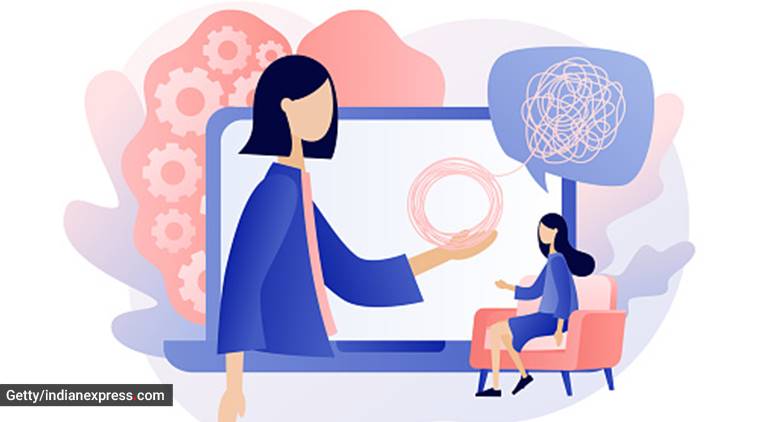This 28-year-old woman is running a mental health platform for specialised therapy at Rs 300 only

Affordability has always been a challenge when it comes to seeking therapy for mental health issues

In 2018, Kanika Agarwal, an Indian entrepreneur based out of Singapore, had rushed to hospital suspecting she has had a heart attack. It turned out to be a panic attack instead. As she sought help, the 28-year-old realised the acute lack of specialised and affordable mental health therapy in India, motivating her to start her own venture named MindPeers, a platform that matches people to specialised, qualified therapists at just Rs 300 per session.
In an email interaction, Agarwal spoke about the continuing stigma around mental health, the importance of affordable therapy and her vision to normalise conversations around the issue.
How does MindPeers aim to contribute in the area of mental health?
MindPeers was founded in January 2020 in New Delhi with a simple vision of making mental wellness, especially therapy, affordable, accessible and most importantly qualitative for consumers and organisations. From diagnosing yourself real time to getting the right qualified and specialist therapist for your needs, we have an end-to-end mental wellness platform. Besides human intervention, our tech platform gives personalised therapeutic techniques/recommendations for the long term to help one in self-care so they can independently take care of their mental wellness for a lifetime. We also have India’s first science-based employee assistance program that is helping both corporates and schools on taking care of mental health at the macro level.
You have battled mental health issues yourself…
I am a serial entrepreneur. Despite the success and scaling of the first company I formed, I went through the dark side of mental health. In the quest to grow my business, I overworked myself to the extent that I started getting panic attacks and anxiety regularly in 2017. Being an Indian based out of Singapore, I wanted to seek therapy from someone in India, who would understand my loneliness and emotions better, but the whole process of finding someone good who could specifically cater to my requirements was just so difficult. To top it all, I was asked by so many to keep quiet because of the stigma. I chose to do the opposite and resolved that the day my first company reaches the milestones I have set for it, I will launch my second company in this area. I would never wish for anyone in this world to go through what I experienced because rewiring our mind to feel better is a daunting process as compared to taking care of your body.
Do you think affordability is a challenge when it comes to seeking therapy for mental health issues?
Definitely, affordability has always been a challenge when it comes to seeking therapy for mental health issues. Offering mental health at a reasonable rate was something mandatory for me because I really want people to understand what quality mental health services can do for them. It’s a chicken and egg problem because if therapy continues to be expensive without any promising results, no one will believe in its results because people will be afraid to try it. But if we unleash this trend to provide quality therapy at an affordable rate, it will be more accessible and will help people experience the wonders it can do. Once mental health becomes as mainstream as physical health services, then affordability will not be questioned because it will be seen as an indispensable part of holistic healthy life.

How did you rope in therapists?
It has not been difficult to hire mental health professionals, but what is difficult is to find quality relevant specialised professionals. We are not in the space to provide a vanilla solution but to ensure qualitative and accurate matching of therapists is done so it can scale and produce ROI. Our hiring process is stringent but therapists who are really passionate about this field have welcomed our vision and appreciate the supervision and training system we have in place which helps them to grow their skill set as well.
Work from home is a lot more stressful than we can imagine, are you taking care of yourself? . . . #MindKiBaat #workfromhome
A post shared by MindPeers (@mindpeers.co) on
What kind of response has MindPeers received? Who are the people seeking consultation the most?
There are more than 2,000 unique customers every month and about 14 corporate clients and their employees at the moment.
Trends observed:
1. Majority of our customers are in the age of 18- 30 with women being dominant demographic.
2. Loneliness, anxiety due to career and relationships/marital, childhood trauma are the top three issues that people are seeking therapy for.
Have there been more queries throughout the coronavirus lockdown? What are the primary issues people are dealing with?
Demand during the lockdown increased by 154 per cent MoM for us, and post lockdown we have seen an increase of 85 per cent MoM. Physical limitations and social isolation have put the minds at the test which has finally encouraged the majority to break the stigma and reach out for therapy and support related to mental issues.
Primary issues that picked up during COVID-19 were:
*Domestic abuse-related issues like trauma, self-esteem, body image
*Anxiety due to social isolation, stress and future uncertainties
*Anxiety due to inability to manage work and home
*Sleep disorders
Since a lot of us are wondering how to find the "right" match, we put together a handy guide! . . . . . #MindKiBaat
A post shared by MindPeers (@mindpeers.co) on
You are also collaborating with schools and corporates. Tell us more.
The thought process of schools and corporates has transformed before and after COVID-19. Given the current scenario, they have become more acceptable and understanding of the importance of mental wellness and the role it plays especially to keep employees productive and energised. We are working towards making mental health objectives and most importantly ROI-driven so that it finds a permanent place in the employee wellness agenda. Our holistic offering includes service level solutions like workshops, personalised toolkits, therapy interventions, etc and, at platform level, we provide macro insights into the organisations overall healthcare, productivity index as well as other metrics that determine its employees’ success.
What are the challenges people in India usually face when it comes to mental health?
There are three simple challenges:
Unawareness of mental health: Often chest pains, panic attacks, body pain, shortness of breath are confused with physical health issues. Largely because of the stigma, majority are unaware the manifestations of mental health disorders.
Lack of quality services: One might be going through clinical anxiety but ends up seeing a depression-specialised counselling psychologist. There is a huge gap in understanding why and how of choosing the right therapist for oneself. Gaslighting is another significant issue that adds fuel to the already existing problem of the lack of quality.
Stigma: This still remains deep-rooted. Especially the thought process that there has to be something critically wrong with your mind to seek therapy needs to change. Going to therapy just to vent out or get clarity of thoughts on a regular basis needs to be normalised too.
? The Indian Express is now on Telegram. Click here to join our channel (@indianexpress) and stay updated with the latest headlines
For all the latest Lifestyle News, download Indian Express App.
Source: Read Full Article


